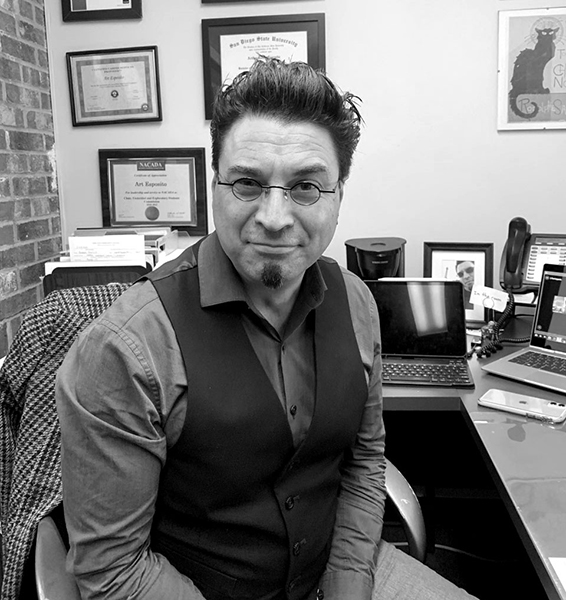Advisors seek to help with transfer process
by Joshua Nawoichik
Though many students may dread it, transferring schools is actually much easier than you may think. Essentially it is the same process as if you were applying to colleges as a high school student, but instead you are applying as a transfer. On the Cape Cod Community College (4Cs) website there is a step-by-step description on what to do before and during your transfer process. However, transferring schools successfully depends on what you do before filling out applications and sending transcripts.
“Planning is everything,” said 4Cs Director of Academic Advising, Arthur Esposito. “It is never too early, and never too late.”

Photo: Director of Academic Advising Arthur Esposito
4Cs uses several helpful programs, links can also found on the college website, such as MassTransfer and Commonwealth Commitment.
Articulation agreements with other colleges around New England have also been set in place to help most of your credits transfer. An articulation agreement is an agreement between two (or more) colleges or universities that guarantees certain classes will transfer to the other school. Finding out what classes are able to transfer is vital in beginning the transfer process.
That is why planning is so important in this process. Most schools will have a layout for each of their majors, showing you what courses need to be completed in the first two years of your education. If you properly plan your schedule at 4Cs, you can end up at your new school with a whole lot of credits already.
One such case is Sam Trellegan, a former student at 4Cs who recently transferred to UMass Amherst after going through the process himself.
“The transfer process was very easy for me,” said Trellegan. “Using the MassTransfer block, it ensured that my credits would easily transfer to UMass Amherst without any headaches.”
Trellegan started planning his path to transfer schools a couple of semesters before he graduated from 4Cs. He also got a lot of help from 4Cs former transferring advisor, Mary Olenik. Though Olenik had a long history of helping students during this process, 4Cs still has people in place to make the process easier. You can meet with Mr. Esposito or several other advisors located right on campus at the advising center. Never be too shy to ask a question when you need help; that is exactly what the advisors are there for.
“Go see an advisor,” Esposito said. “They house all of the knowledge in the transfer game. Or call an admissions line and ask about the articulation agreements they have with 4Cs.”
The school that you are applying to essentially “holds all of the cards”, Arthur added. In the end, they are the ones who decide whether or not the credits will transfer. When it comes to basic general education classes, more than likely they will transfer without problem. However, some of the more obscure classes may not, which is why it is important to save yourself some money and make a plan to ensure that all of your credits are going to transfer to the school of your choice.
Whether you are graduating from 4Cs or simply wish to move on to a four-year anniversary, the advisors are here to lead you every step of the way.
Categories: Around Campus,